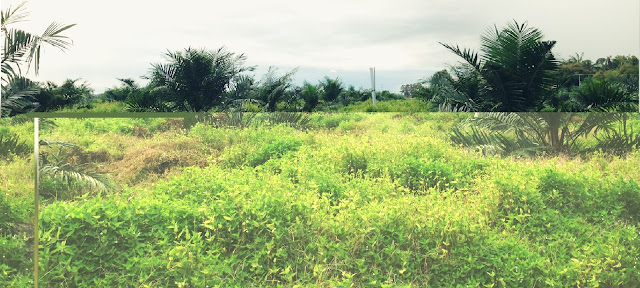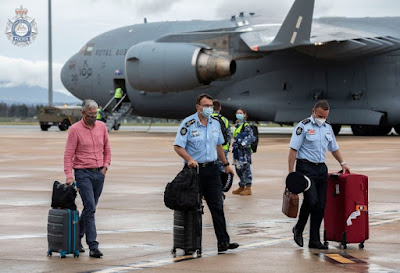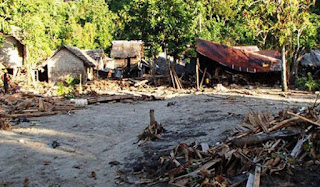Rhino beetle eradication a MUST
The declaration of the Coconut Rhinoceros Beetle (CRB) as a pest couldn’t have come at a better time. Just recently a statement issued by the Solomon Islands Chamber of Commerce and Industry (SICCI) has applauded the government for declaring the Coconut Rhinoceros Beetle (CRB) as an emergency pest.
Despite the National Government's declaration, the ministry responsible hasn’t been able to keep up with keeping the pests at bay. Currently the pheromone chemical costs US$6 per day, a cost deemed too expensive by the Ministry of Agriculture and Livestock. With budget cuts in most Ministries, the Agriculture Ministry was also affected by the cuts, making it impossible for them to carry out an eradication exercise on the Rhino beetle.
For Solomon Islands, coconut and copra is the longest standing commercial small holder income generating activity. In a report by the Coconut Sector Strategy, it says there are risks that production and exports will decline unless there are definite steps to revive the sector. That was before the infestation of the Rhino beetle.
First sightings of the CRB were in 2012 and since then, it has spread further into Guadalcanal as far as Visale in Northwest Guadalcanal and oil palms at Guadalcanal Plains Palm Oil Limited in North Guadalcanal.
The CRB has already caused a lot of damages to the coconut and oil palm industry incurring a loss of 2 to 300 thousand dollars per year for GPPOL. Though not much data has been collected on the widespread damages caused by the CRB to the economy, it is evident that the threat to this industry is high. For GPPOL alone, since the infestation of the CRB to the palm trees, an estimated 600 thousand dollars had been spent to control the CRB from spreading to other parts of the plantation. Already 23 acres of land from the 6800 plantation area has been infested by the CRB pest.
GPPOL’s General Manager, Craig Gibson says so far, not much help has been forthcoming from the government. For GPPOL it costs them 2 to 300 thousand dollars per year to control the pests from spreading. The control measures undertaken were on going, as they haven't seen any declination of the CRB to their palms.
This is a grave issue for the country & the government really needs to step up if we are to seriously tackle this problem.
Just recently the Central Bank launched its Annual Report & speaking on the occasion, Central Banks Governor says
Solomon Islands should be better prepared to take appropriate action now to ensure the country’s future prosperity is guaranteed.
Solomon Islands should be better prepared to take appropriate action now to ensure the country’s future prosperity is guaranteed.
Mr. Denton Rarawa says building resilience is critical for the country. He says since Solomon Islands is ranked one of the most vulnerable and fragile countries in the world, building resilience is not just about preparing for natural disasters or taking mitigation and adaptation measures to deal with the impacts of climate change.
Instead Mr. Rarawa says resilience building covers a lot of areas such as planting mangroves to protect our coastlines, enforcing laws and regulations, addressing our high population growth as well as tackling the rhinoceros beetle that is damaging our coconut trees and the giant African snail that is threatening our agriculture sector.
In a media statement the Solomon Islands Chamber of Commerce & Industry as a member of the Coconut Rhinoceros Beetle Committee (CRBC) says it is a relief that our government has taken the positive step in making this a national emergency issue.
They urge all stakeholders including the Government, businesses and NGOs and the Private Sector to work together to boost the eradication process.
ENDS///




Comments
Post a Comment